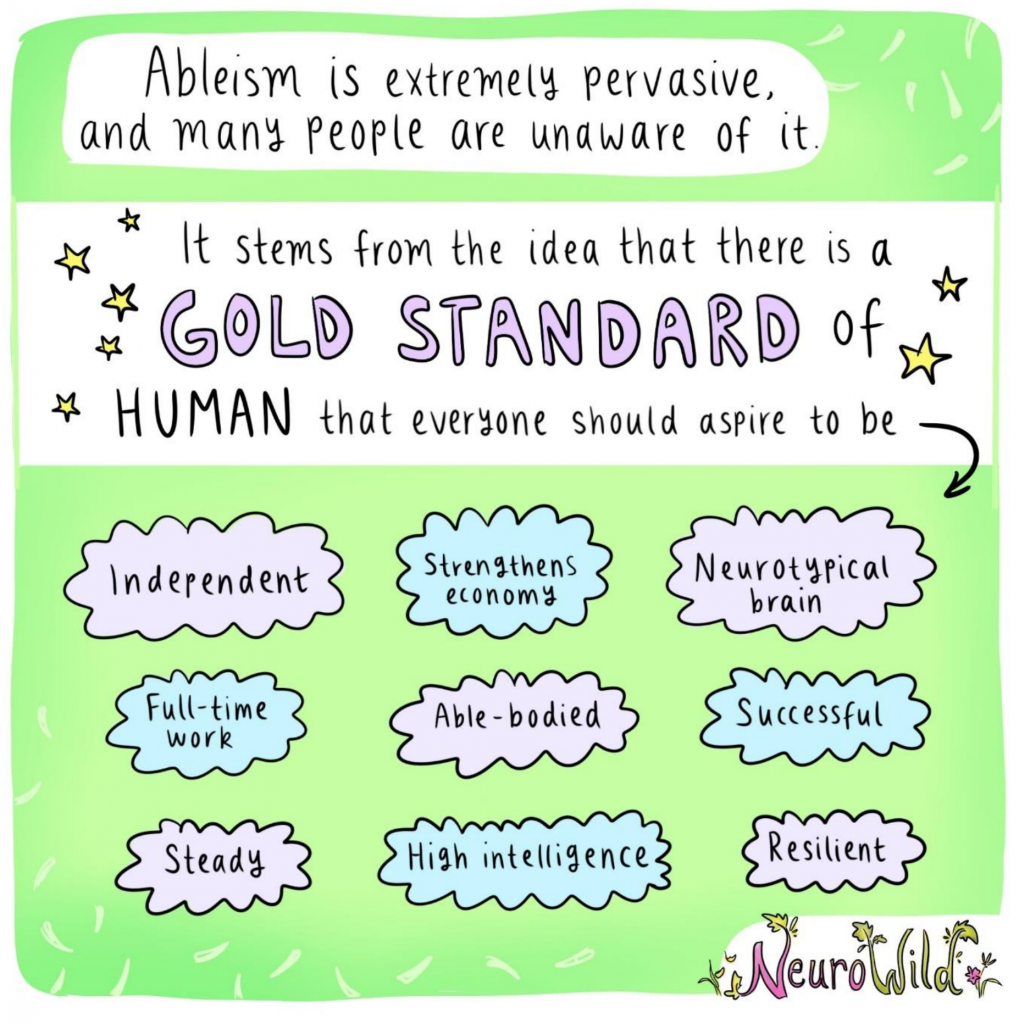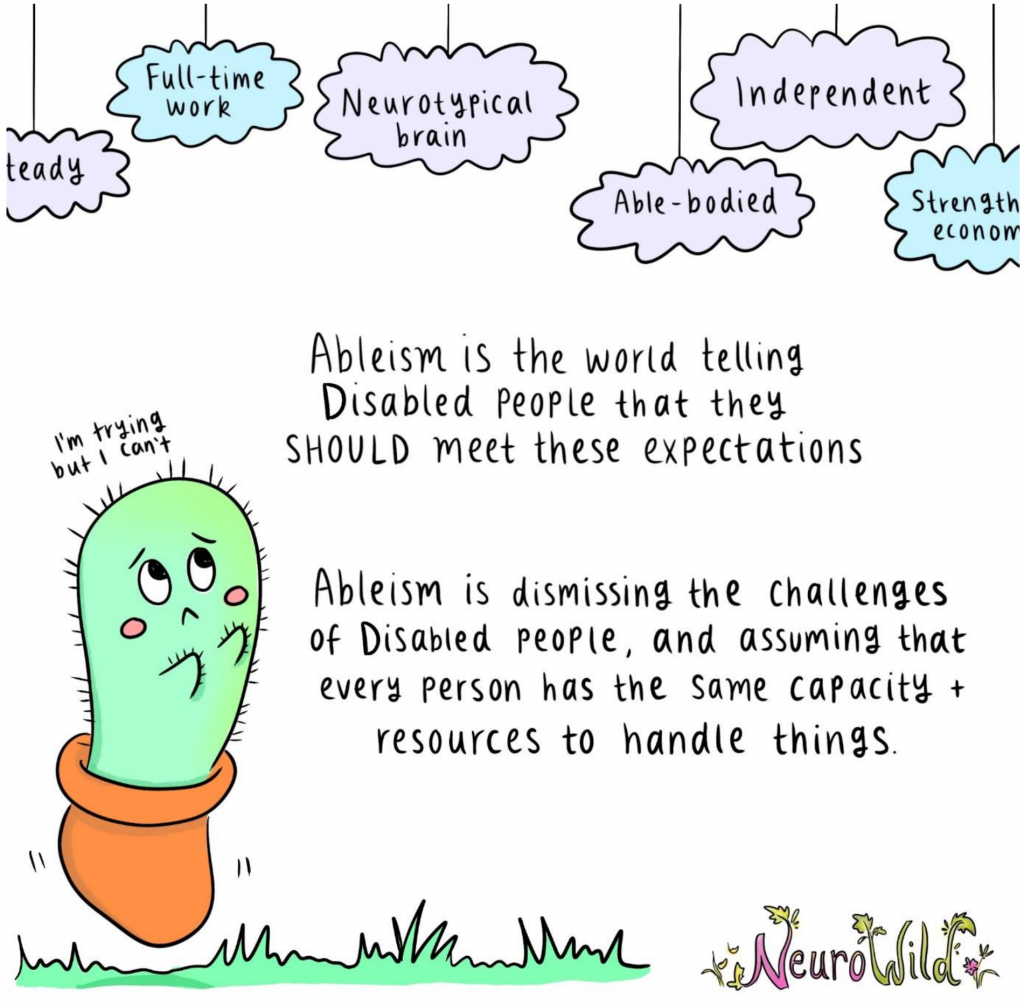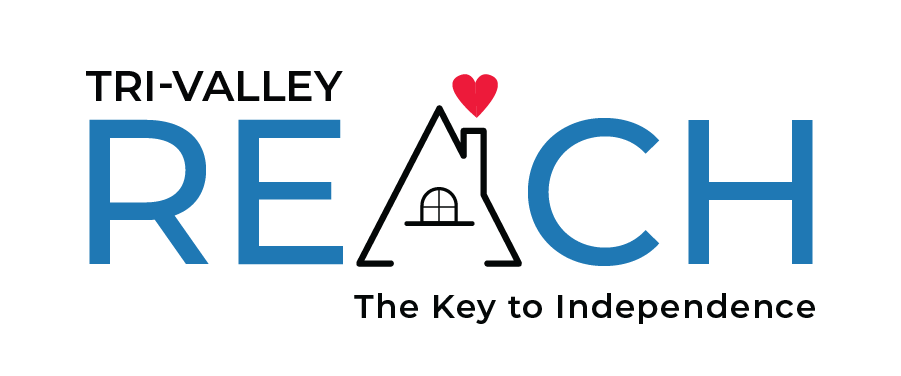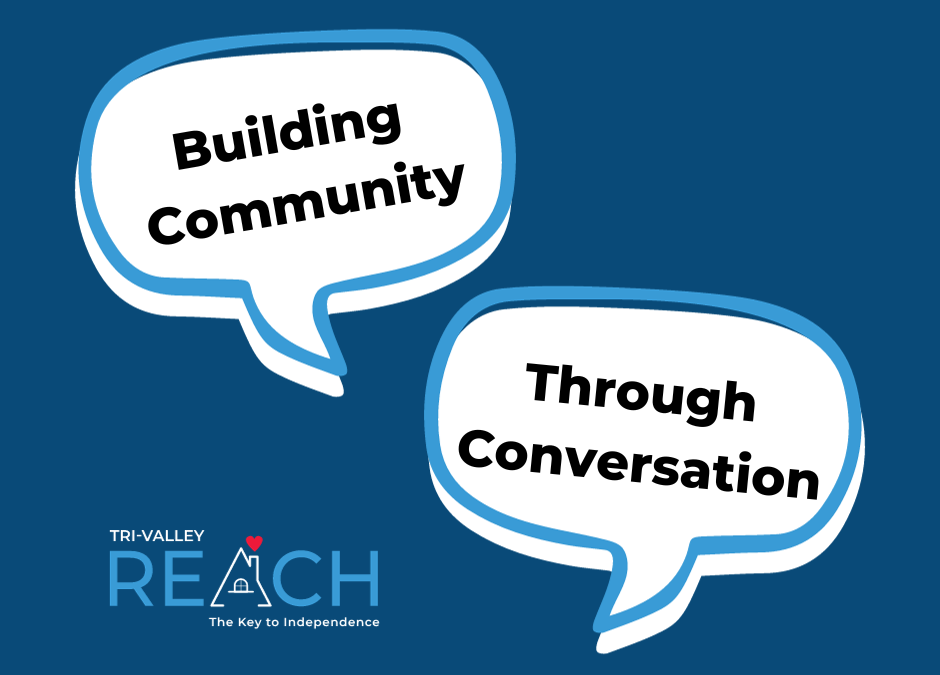Let’s Talk About Ableism

This month we are going to talk about a difficult topic that requires some examination of our own unconscious biases: Ableism. Put simply, Ableism is discrimination against disabled individuals based on the typically unconscious belief that being able-bodied, without any differences or challenges, is the “normal” or “right” way to be in our society. Ableism involves prejudging and underestimating an individual’s ability and aptitude based on their outward presentation of disability. This can happen in an instant – an unconscious snap judgment as a result of years of ingrained beliefs about the capabilities of disabled people.
Ableism in Action
The Americans with Disabilities Act (ADA), established in 1990, was enacted to prohibit discrimination against disabled individuals and promote inclusion into society by ensuring access for all. Despite these measures, ableism Is often unconscious and frequently shows up in ways that are indirect or unnoticeable. For example, failing to make resources available in Braille or American Sign Language (ASL), extended periods of broken elevators in the public transit system, designing activities without thinking of adding in accommodations for disabled individuals, using ableist language and phrases that are part of our society’s vernacular, turning the person into a hero by praising them for doing everyday tasks, and making well meaning comments such as “But you don’t look (fill in the name of any disability).” There are also more blatant ways that Ableism shows up in society including assuming that disabled people are less intelligent or capable than nondisabled people, referring to disabled people as if they had a disease, hiring the bare minimum number of disabled employees, not treating disabled employees with the same equity as non disabled employees, and making bad jokes about disabled people.
Because ableism is both internalized and institutionalized in our society, there are many commonly used words and statements that are not regarded as damaging by most as they have slowly crept into and embedded themselves in our everyday language.
Some of these terms include:
-
-
-
-
- “Turn a blind eye”
- “Fall on deaf ears”
- “I/that is so (insert name of disability here)”
- “Tone deaf”
- “Are you blind”
- “Blind Spot”
- “You’re (insert name of disability here)? You seem so happy.”
- “How do you (shop, work, go to school, etc.) if you are disabled?”
- “Confined to a wheelchair”
- “That’s my OCD.”
- Crippling/crippled by
- “The weather is very schizo today.”
-
-
-
Some of these terms are fairly obvious. Others may have elicited surprise as you read them because they are so deeply embedded into our language that we don’t recognize the true meaning, for example blind spot, tone deaf, and turning a blind eye. We have all used some of these terms as many are commonplace and as such, are not brought into question. The important thing is to notice them and practice using different terms as we become aware of their use in our own lives.
The Effects of Ableism 
The effects of ableism range from subtle to outright (damaging). There are emotional and psychological consequences of exposure to ableism by disabled individuals. Words and phrases like the ones listed earlier can have a slow and cumulative effect on emotional health as those terms impart a sense that something is lacking or “wrong” with a group of individuals. Ableism also leads to exclusion of disabled individuals which puts them in disadvantaged situations due to lack of access to the same opportunities as non disabled individuals.
What Can We Do?
The most important, and probably most difficult place to start in battling ableism is to identify ableism in ourselves. This means noticing those thoughts that pop into our heads, challenging those first impressions, and hearing those seemingly innocuous words and phrases that are ingrained in our lexicon. Another important thing we can do is treat disabled individuals with equity and respect. As a society, we have come a long way in this regard, and it can be easy to overlook that there is still progress left to make. Being curious and open minded is an important aspect in this effort, as it may help to correct some of the erroneous beliefs we have about disabled individuals. We can also endeavor to create more spaces where differences are supported and celebrated. This can lead to us expanding our interactions with our disabled peers which will allow us to listen to their perspectives and learn from them.
This sounds like a lot, I know. But together, we’ve got this! We can do challenging things to make the world a better, more equitable place for all.

